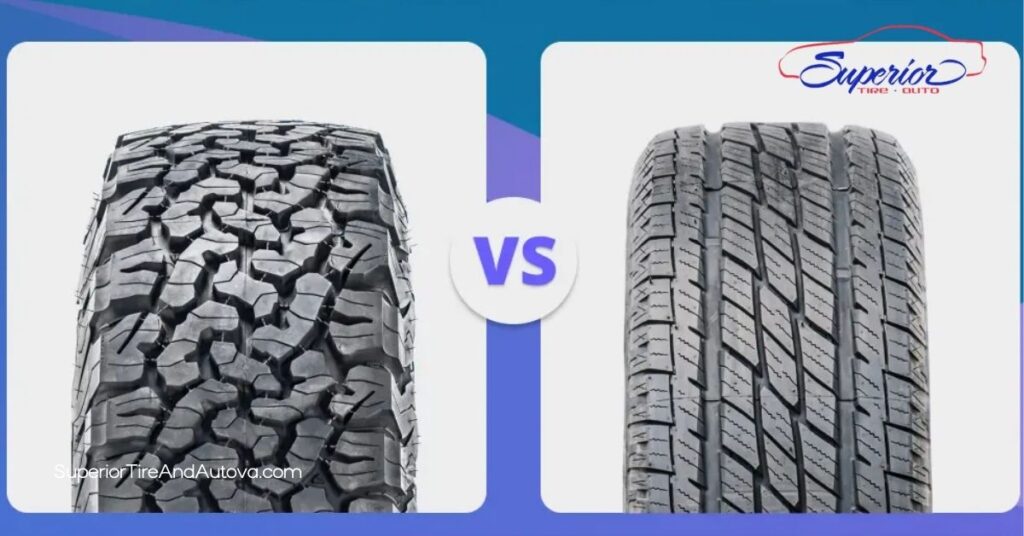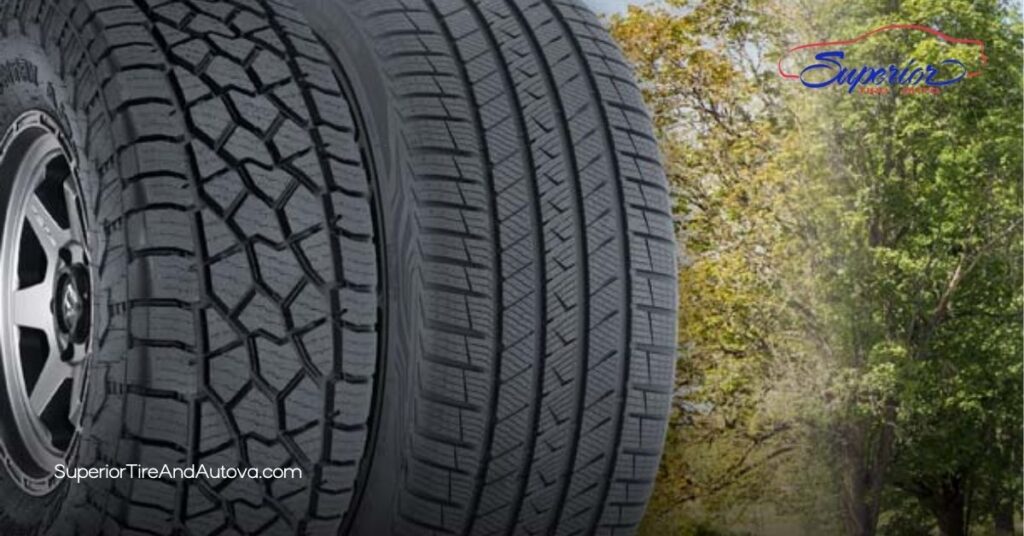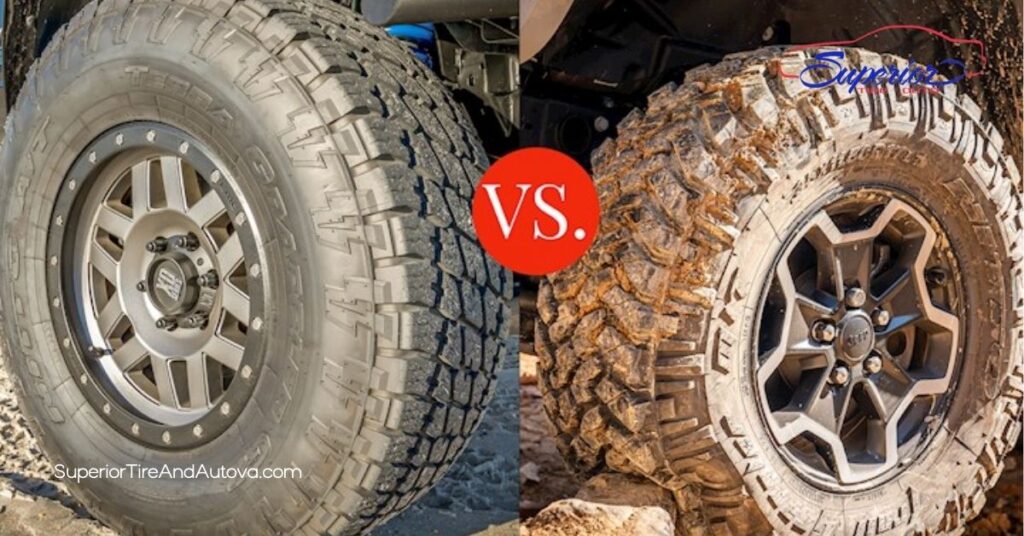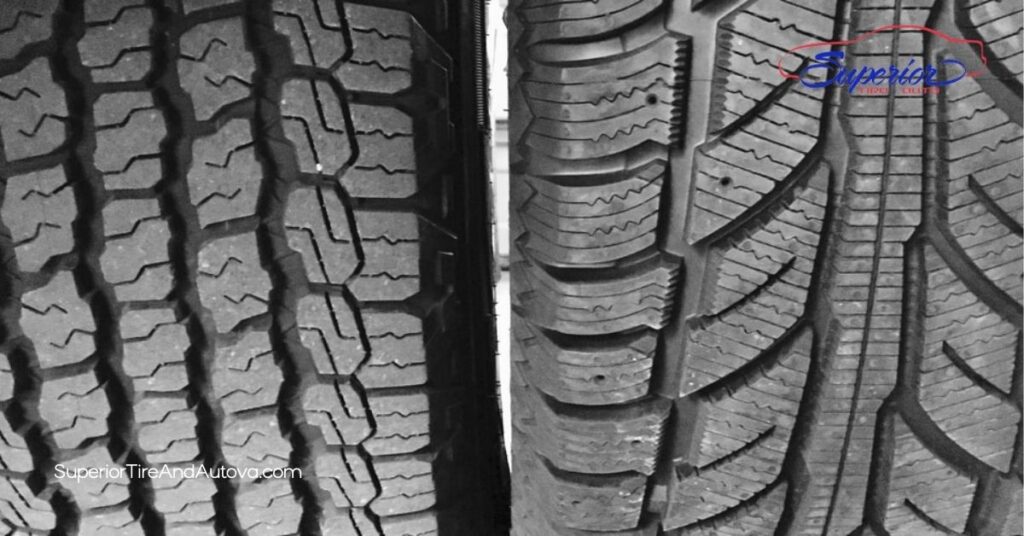Choosing the right tires for your vehicle can feel overwhelming, especially with so many options out there. You might be wondering whether all-season tires or all-terrain tires are the best fit for your driving needs. Each type has unique benefits that cater to different driving conditions and lifestyles, so it’s crucial to understand the differences before making a decision.
All-season tires offer versatility and comfort for everyday driving, while all-terrain tires are designed to tackle rugged landscapes and off-road adventures. If you love hitting the trails or need a tire that can handle varying terrains, all-terrain might be your best bet. On the other hand, if you mostly drive on highways and city streets, all-season tires could be the perfect solution. Let’s dive deeper into the features of each tire type to help you make an informed choice.
Overview of All Season and All Terrain Tires

All-season tires excel in providing versatility for everyday driving conditions. These tires perform well in various weather scenarios, including light rain and snow. Comfort remains a priority, ensuring a smooth ride on highways and city streets.
All-terrain tires cater to drivers who often navigate off-road environments. These tires feature a more rugged tread design, improving traction on unpaved surfaces such as gravel, mud, and sand. Durability is a key aspect, as all-terrain tires withstand harsher conditions and rough terrains.
You might notice that all-season tires are typically quieter on the road. In contrast, all-terrain options may generate more noise due to their aggressive tread patterns. This difference can influence your choice depending on your driving preferences.
Fuel efficiency favors all-season tires, which generally provide better gas mileage. Meanwhile, all-terrain tires prioritize grip and handling on uneven surfaces. Understanding these distinctions aids in selecting the right tire type according to your driving habits and needs.
Choosing the appropriate tire can enhance both safety and performance. By recognizing the advantages of each option, you can make an well-informed choice that fits your lifestyle.
Key Differences Between All Season and All Terrain Tires

Understanding the differences between all-season and all-terrain tires enhances your driving experience. Each tire type serves distinct purposes, making it essential to choose based on your driving habits.
Tread Design
All-season tires feature a symmetrical tread pattern, designed for balanced handling and comfort on various road surfaces. This design includes sipes—tiny slits—improving traction in wet conditions and light snow. Water evacuation is optimized in all-season tires to reduce hydroplaning risks. In contrast, all-terrain tires boast an open-tread design, similar to off-road tires, yet remain suitable for on-road driving. This unique pattern enhances grip on snow, mud, and gravel, while robust and durable materials provide added support in harsh environments.
Performance in Various Conditions
All-season tires supply reliable performance on paved roads, delivering comfort on highways and city streets. You can expect a smooth ride due to their design, perfect for everyday driving scenarios. On the other hand, all-terrain tires excel in off-road conditions, handling rugged landscapes and providing superior traction on unpaved surfaces. The aggressive tread patterns of all-terrain tires enhance grip and handling, making them well-equipped for adventures in muddy or sandy terrains. Choosing the right tires based on these performance characteristics ensures safety and efficiency customized to your exact driving needs.
Advantages of All Season Tires

All-season tires offer a range of advantages for everyday driving. They excel in balanced performance across various conditions, including dry roads, wet surfaces, and light winter weather.
Comfort and Noise Levels
All-season tires create a more pleasant driving experience. Their tread patterns are designed to minimize road noise, allowing for a quieter ride. You’ll notice an increase in comfort on highways and city streets compared to all-terrain tires. This smoother operation enhances overall enjoyment during your daily commutes.
Longevity and Durability
Longevity and durability are important benefits of all-season tires. These tires often exhibit lower rolling resistance, improving fuel efficiency and extending tread life. With proper maintenance, all-season tires can outperform their all-terrain counterparts in terms of wear. Expect better performance over time, especially during moderate driving conditions.
Advantages of All Terrain Tires
All-terrain tires offer distinct advantages for those who frequently traverse rugged terrains. These tires enhance both off-road and on-road driving experiences significantly.
Off-Road Capability
All-terrain tires excel in off-road capability. They withstand rough, uneven surfaces such as mud, sand, and snow, making them perfect for adventurous driving. Aggressive tread patterns pave the way for overcoming natural obstacles like rocks and gravel. Interlocking tread elements provide better grip on various off-road tracks, ensuring your vehicle maintains stability regardless of the terrain.
Traction and Handling
Traction and handling are vital when handling different surfaces. An open-tread design enhances grip, promoting high traction on mud, dirt, and other challenging terrains. Reliable locking grips allow for confident handling even in unsafe conditions. You can drive safely on difficult paths, knowing that all-terrain tires offer the support needed to keep your vehicle steady and responsive.
Factors to Consider When Choosing Tires

When selecting tires, several factors influence your decision-making process. It’s crucial to consider your driving habits alongside the climate and terrain you’ll encounter.
Driving Habits
All-season tires suit drivers who primarily navigate highways and city streets. You benefit from a smooth and quiet ride along with better fuel efficiency. This tire type offers adequate traction for most on-road conditions. Conservative drivers, those prioritizing safety and comfort, favor all-season tires. They provide a solid balance between performance and efficiency under typical driving scenarios. Alternatively, if you frequently venture off-road or drive in harsh conditions, all-terrain tires become essential. These tires deliver superior grip and strength across unpaved surfaces. For adventurous outings or outdoor activities, consider this tire type for enhanced performance.
Climate and Terrain
Moderate weather conditions often dictate your choice of tires. All-season tires perform well in light winter weather, wet roads, and dry conditions. They adapt flexibly, ensuring a reliable driving experience across various climates. In contrast, if you often drive on rugged terrains or encounter heavily muddy areas, all-terrain tires stand out. Their open-tread design excels on uneven surfaces like gravel and sand, providing increased stability. Evaluating these factors based on your typical conditions and activities helps you choose the optimal tire for your vehicle.
Conclusion
Choosing between all-season and all-terrain tires eventually comes down to your driving needs and the environments you encounter. If you primarily drive on paved roads and want a comfortable ride with good fuel efficiency, all-season tires are your best bet. They offer versatility and performance in various weather conditions without compromising on comfort.
On the other hand, if you love off-road adventures and frequently tackle rugged terrains, all-terrain tires are designed for you. Their aggressive tread patterns and enhanced traction make them ideal for handling challenging surfaces. By assessing your driving habits and the conditions you face, you can select the right tires that enhance both safety and performance for your vehicle.
Frequently Asked Questions
What are the main differences between all-season and all-terrain tires?
All-season tires are designed for everyday driving, offering versatility, comfort, and fuel efficiency. They perform well in various weather conditions, including light rain and snow. In contrast, all-terrain tires are built for off-road adventures, featuring a rugged tread design for enhanced traction on unpaved surfaces like gravel, mud, and sand.
Which type of tire is better for highway driving?
All-season tires are typically better for highway driving. They provide a smooth, comfortable ride and are designed to minimize road noise, making them ideal for long trips on paved roads and city streets.
Are all-terrain tires suitable for everyday use?
While all-terrain tires can be used for everyday driving, they may generate more road noise and prioritize grip over fuel efficiency. They are best for those who frequently drive off-road or in rugged conditions, while all-season tires are preferred for regular urban and highway use.
How do the tread designs differ between all-season and all-terrain tires?
All-season tires feature a symmetrical tread pattern with sipes for enhanced wet traction and reduced hydroplaning risks. All-terrain tires have an open-tread design that provides superior grip in off-road conditions, handling rough terrains like mud and sand more effectively.
What factors should I consider when choosing tires?
When choosing tires, consider your driving habits, the climate you encounter, and the terrains you typically drive on. All-season tires are ideal for highway and city driving, while all-terrain tires are necessary for frequent off-road adventures or harsh conditions.
How do all-season tires affect fuel efficiency?
All-season tires generally offer better fuel efficiency due to their lower rolling resistance. This design helps extend tread life and reduces how hard your engine has to work, making them a more economical option for moderate driving conditions.
Can all-terrain tires provide a comfortable ride?
All-terrain tires may not provide the same level of comfort as all-season tires. Their aggressive tread patterns are designed for grip in rugged environments, which can result in a noisier ride on paved roads. They excel in traction over comfort.
How long do all-season tires typically last?
The lifespan of all-season tires varies based on driving conditions and maintenance but usually ranges from 40,000 to 70,000 miles. Proper care, including regular rotations and pressure checks, can help extend their longevity.
Which type of tire is best for snowy conditions?
While both types can handle light snow, all-season tires are more suitable for general winter driving due to their balanced performance and comfort. For heavier snow and off-road conditions, all-terrain tires may provide better traction on unplowed roads.

